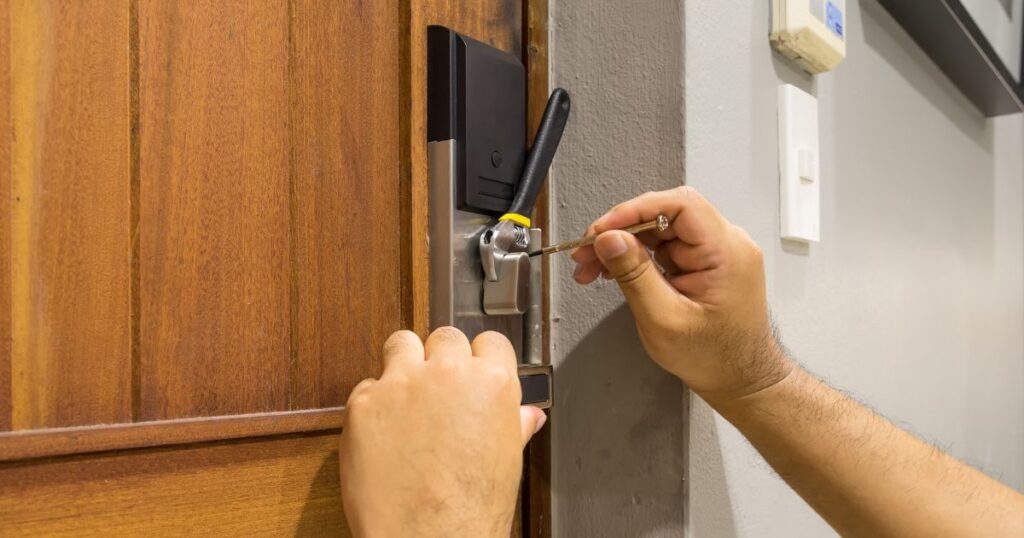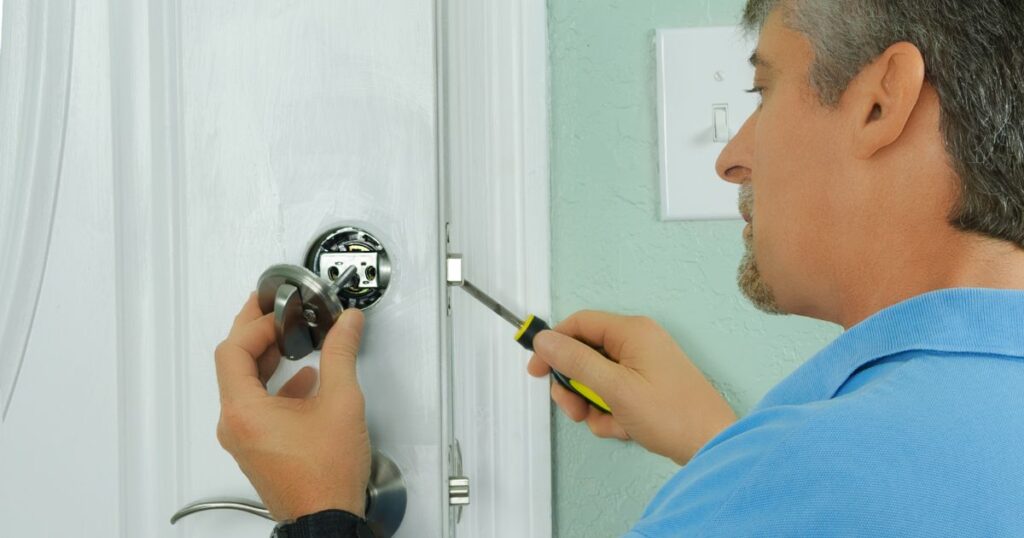
How to Become a Locksmith in Texas
Becoming a locksmith in Texas is no easy feat. It requires dedication, hard work, and a willingness to learn. But before you even think about pursuing this career, you need to understand the locksmith license Texas requirements that come with it.
First things first, you must obtain a locksmith license in Texas. This is done through the Private Security Bureau (PSB), which is part of the Texas Department of Public Safety.
According to the Texas Administrative Code, anyone who wants to work as a locksmith in Texas must be licensed by the PSB. To obtain your license, you’ll need to meet several requirements.
These include completing a 48-hour basic locksmith course from an approved training provider and passing a criminal background check. You’ll also need at least one year of full-time employment with a licensed locksmith or proof of completion of an apprentice training program.
Once you’ve completed these requirements, you’ll be eligible to take the Qualified Manager’s Exam. This exam tests your knowledge and understanding of key areas related to locksmithing, such as business practices and ethics.
However, obtaining your license is just the beginning – it’s important to continue learning and growing as a locksmith if you want to succeed in this field. Continuing education is key for staying up-to-date on new technology or techniques that may affect your work.
One option for ongoing training is attending a locksmith trade school or taking courses from reputable organizations that offer continuing education opportunities for practicing locksmiths. Investing time into education outside of just meeting minimum licensing requirements can lead to not only better skills but potentially higher earnings over time.
Becoming a licensed locksmith in Texas requires meeting certain criteria and taking necessary steps such as completing educational and apprenticeship programs while passing criminal background checks all under the purview of The Regulatory Services Division department under The Private Security Bureau (PSB). However, once those steps are complete, it’s important not to stop learning about advancements within this trade if one wants professional success and longevity within the field.
Licensing Requirements to Become a Locksmith
If you want to become a locksmith in Texas, one of the first things you’ll need to do is get licensed.
The Private Security Bureau (PSB) regulates locksmiths in Texas and requires that anyone who wants to work as a locksmith must be licensed. The requirements for getting a locksmith license Texas are quite extensive and can be overwhelming for those who are just starting out.
One of the most important requirements for getting a locksmithing license in Texas is completing an apprenticeship program or training course. This typically involves working full-time under the supervision of a licensed locksmith for a certain number of hours or completing a 48-hour basic locksmith course.
While this may sound like an easy feat, finding full-time employment with a licensed locksmith can be tough, especially if you don’t have any prior experience, once you complete your training program or apprenticeship, you’ll also need to pass the Qualified Manager’s Exam.
This exam covers everything from key identification to lock-picking techniques and is designed to ensure that only qualified individuals are operating as professional locksmiths in Texas. In order to take this exam, though, you’ll need proof that you’ve completed an approved training program or apprenticeship.
Another important requirement for becoming licensed as a locksmith in Texas is passing criminal background checks conducted by both the PSB and the Texas Department of Public Safety. This means that even if you’ve completed all other requirements, your application could still be denied if there are any red flags on your record.
Once you’re officially licensed as a locksmith in Texas, it’s important to stay up-to-date with continuing education requirements so that your license doesn’t expire. These continuing education courses cover everything from changes in state laws related to lock-picking techniques and security technology updates.
Overall, becoming licensed as a professional locksmith in Texas takes time, effort, and dedication, but it’s worth it if helping people feels fulfilling and is something that you love doing. Whether you choose to become a locksmith through an apprenticeship program, trade school, or another training route, just remember that the licensing requirements are in place for a reason, and it’s important to take them seriously in order to ensure that you’re providing your clients with high-quality services and keeping the industry safe.
Locksmith Training Options
When it comes to locksmith training options in Texas, there are a few different routes you can take. The most common option is to complete an apprentice training program under a licensed locksmith.
This will give you the hands-on experience you need to become proficient in all aspects of locksmithing, from rekeying locks to installing high-security systems. In addition to apprenticeships, there are also several locksmith trade schools throughout Texas that offer formal education and training programs.
These programs typically cover everything from the basics of lock picking to advanced security system installation, and they often include both classroom instruction and hands-on practice. Another option for aspiring locksmiths in Texas is to pursue continuing education through the Private Security Bureau (PSB).
The PSB offers a range of courses and seminars aimed at helping locksmiths stay up-to-date on the latest industry trends and techniques. Additionally, completing PSB-approved continuing education courses can be an important step for those looking to advance their careers or achieve higher levels of licensure.
Of course, before you can even think about pursuing any kind of locksmith training or continuing education program in Texas, you’ll need to meet certain licensing requirements. These include passing a criminal background check, completing a 48-hour basic locksmith course, and passing the Qualified Manager’s exam if you plan on operating your own business.
Overall, while there are certainly plenty of options available when it comes to becoming a licensed locksmith in Texas, it’s important that you choose an option that best fits your career goals and learning style. Whether you opt for an apprenticeship under a licensed professional or enroll in a formal training program at one of the state’s many trade schools or universities, make sure you’re getting the kind of experience and education necessary not only to pass your licensing exam but also thrive as a professional locksmith.
Frequently Asked Questions
Do you need a license to be a locksmith in Texas?
To be a locksmith in Texas, you need to obtain a license. The Texas Department of Public Safety regulates locksmiths and requires them to meet specific criteria and pass background checks to obtain a license.
How much is a locksmith license in Texas?
The cost of a locksmith license in Texas may vary. It is advisable to consult the Texas Department of Public Safety or relevant licensing authorities for accurate information on the current fees associated with obtaining a locksmith license.
Does a locksmith need a certificate?
While not all jurisdictions require a certificate, obtaining a locksmith certification can enhance your professional credibility and demonstrate your expertise in the field. Various organizations offer certification programs for locksmiths, which typically involve passing exams and meeting specific requirements.
How do I check my locksmith license in Texas?
To check your locksmith license status in Texas, you can contact the Texas Department of Public Safety or visit their official website to access the necessary resources and verify the validity of your license.
How do you become a locksmith in the US?
To become a locksmith in the US, the specific requirements may vary by state. Generally, it involves completing a locksmith training program, gaining hands-on experience, and obtaining a locksmith license where required. It is advisable to research the requirements of the state in which you wish to practice and follow the necessary steps, which may include apprenticeships, passing exams, or fulfilling certain educational criteria.
Conclusion
Becoming a licensed locksmith in Texas can be a challenging task, but it is an essential one. The state of Texas has put in place stringent regulations and requirements to ensure that only qualified individuals can provide locksmith services to the public.
These regulations include criminal background checks, apprenticeships, training programs, and continuing education. The Private Security Bureau (PSB) of the Texas Department of Public Safety oversees the licensing process for locksmiths in Texas.
They are responsible for enforcing the rules and regulations outlined in the Texas Administrative Code, which includes requirements such as completing a 48-hour basic locksmith course and passing the Qualified Managers exam. While some may argue that these regulations are excessive and unnecessary, I firmly believe that they are critical to ensuring public safety.
Locksmiths have access to people’s homes and businesses personal property, making it imperative that only trustworthy individuals have access to this profession. Furthermore, becoming a licensed locksmith opens up numerous opportunities for those who wish to pursue this career path.
It allows them to work full-time with a licensed locksmith or start their own business providing services such as lock installation and repair. Overall, I believe that obtaining a locksmithing license in Texas is well worth the effort required.
While it may seem like an arduous process at first glance, it ensures that only qualified individuals are providing essential security services to the public. So if you’re interested in pursuing a career as a locksmith in Texas, don’t let these requirements dissuade you – they’re all part of what makes this profession so important!






